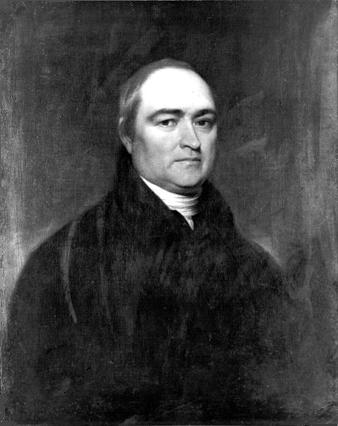From Seth Folkers:
As the oldest son of a daughter of Jonathan Edwards, great things might have been hoped for Timothy Dwight, but they did not come by accident. His mother, a godly and intelligent woman with decided views, was in earnest about her responsibility towards her son. She taught him early, not only to read—he was easily reading the Bible at four— but to love learning. At eight years old his competency at Latin and Greek enabled him to pass the Yale entrance exam (though he was held back from entering until the ripe age of thirteen, and spent the intervening years under her tutelage voraciously devouring history and geography).
Yet, it has been truly remarked that “Great boys rarely make great men.” Genius itself has contributed little to the benefit of mankind. It was not so much genius, but discipline, that characterized Dwight: for example, during his years as a Yale upperclassman he would arise an hour before prayers to parse one hundred lines of Homer by candlelight. He was appointed a tutor (an important faculty position in those days) at Yale after receiving his Master’s degree at nineteen, and devoted fourteen hours a day to teaching and studying. As a teacher, he was remarkably gifted, and well-loved and respected by his pupils—not only was his knowledge extraordinarily broad and deep, but he had diligently developed his skills of communication.
So assiduous was Dwight in his academic pursuits that he utterly neglected the physical needs of his body, and destroyed his health by the age of twenty-two. Death seemed imminent. He was forced to leave his collegiate duties and return home, where he applied himself with such characteristic diligence to the recovery of his health that in two years he was able to return to Yale as tutor, and thereafter made exercise and proper nourishment the subjects of his diligent care, just as much as his educational endeavors.
Most importantly, this trial turned his mind to eternity, and a testimony of personal conversion was the result.
Dwight’s marriage followed shortly thereafter, and then a commission as chaplain in the Revolutionary Army; but after only a year’s service, the death of his father called him home to assume the care of his mother and many siblings, in addition to his own fledgling family. He worked hard and persevered faithfully through very trying circumstances, both financially and socially, and earned the respect of the entire community, so much so that he was elected to the state legislature. Although a promising career in politics was open to him, that was not his calling. He had already been filling various pulpits, and with his family reestablished he accepted a pastorate in Greenfield Hill, CT in 1783.
While back in Northampton, Dwight had started a successful school that even drew away students from Yale.10 In Greenfield Hill, to supplement his insufficient income, he founded an academy that became renowned throughout the nation. When the death of Ezra Stiles necessitated a new president for Yale in 1795, Dwight was the clear choice.
His Presidency
Dwight faced a daunting task. One man expressed the view of many others at that time when he said that the college was then in a state of “lamentable declension.” It had only 110 students, one professor and three tutors, and discipline was lax. Most significant was what Lyman Beecher later recalled as the “most ungodly state” of the college,
full of “intemperance, profanity, gambling and licentiousness.” Rampant unbelief, and a fascination with such opponents of the Bible as Voltaire, Paine and Rousseau, characterized this school, as indeed most all colleges in America at that time. Christianity skulked in the shadows and infidelity reigned supreme among the students.
Truly, Dwight had been raised up for “such a time as this.” The story, related particularly by Lyman Beecher, of how Dwight immediately challenged the students to an open discussion of the inspiration and trustworthiness of Scripture is well-known. While he was still at Greenfield Hill, the Fairfield Association of clergymen, of which he was a part, had pushed for a statewide resolution establishing a yearly message supporting the authority of Scripture. Dwight’s Discourse on the Genuineness and Authenticity of the New Testament, delivered in 1793, had earned him wide reputation as a champion of Scriptural authority. His “strategy … rested upon the conviction that atheistical philosophy could never stand against truth.” Chauncey Goodrich, historian of the Yale revivals, writes:
The accession of Dr. Dwight to the presidency, at this critical period, was a signal blessing to the institution. His commanding talents, his fervid eloquence, his powerful reasonings in behalf of Christianity, both in the lecture-room and the chapel, checked the tendency to skepticism which had begun to prevail in college, and gave dignity to the cause of spiritual religion, which had been regarded by too many with contempt and derision.
Read More at http://folkersfamily2africa.org/wp-content/uploads/2017/05/Timothy-Dwight-and-the-Yale-Revival.pdf
Related
Sorry, no records were found. Please adjust your search criteria and try again.
Sorry, unable to load the Maps API.
